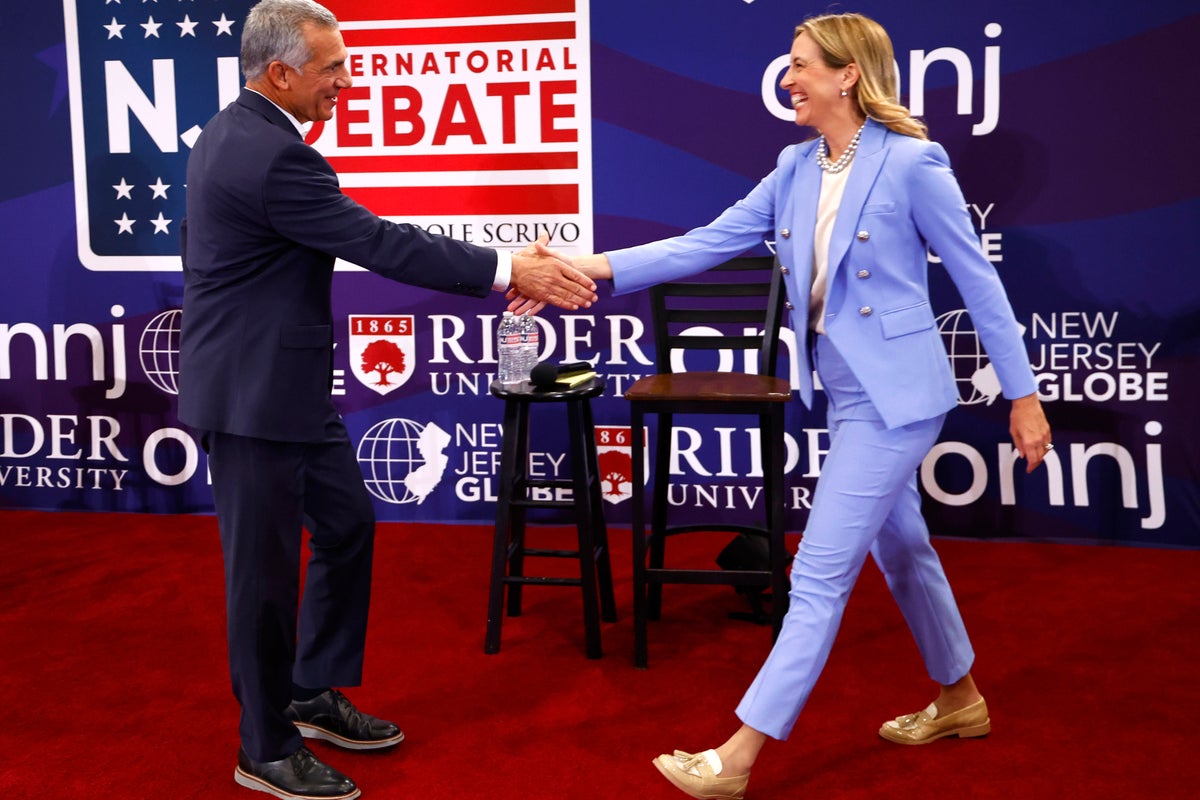Politics
Government Shutdown Tests Strategies Ahead of Key Elections

The ongoing government shutdown, now entering its first full week, has intensified political tensions as both major parties remain at an impasse. House Minority Leader Hakeem Jeffries challenged House Speaker Mike Johnson to a televised debate, a proposal Johnson declined. With neither Democrats nor Republicans nearing an agreement, the narrative around the shutdown has emerged, with each side blaming the other for the deadlock.
Republicans have branded the situation a “Schumer Shutdown,” placing responsibility on Senate Minority Leader Chuck Schumer. Conversely, Democrats accuse Republicans of jeopardizing crucial tax credits for the Affordable Care Act’s health care marketplace. A recent poll by The Washington Post revealed that a significant portion of Republicans hold former President Donald Trump and the GOP accountable for the shutdown, highlighting the complexities in determining a “winner” in such scenarios.
As the shutdown continues, the upcoming gubernatorial elections in Virginia and New Jersey in November could serve as key indicators of public sentiment. Historically, these elections, held in odd years, provide insight into national political trends and often reflect the mood ahead of midterm elections. In the past, the party out of power has frequently succeeded in these races, with notable wins like Chris Christie in New Jersey in 2009 and Glenn Youngkin in Virginia in 2021.
This year, Republicans are facing challenges in both states, despite performing better than expected in the previous elections. In Virginia, where the federal workforce significantly influences the economy, government cutbacks have already resulted in job losses. Youngkin’s lieutenant governor, Winsome Earle-Sears, is vying for the governorship, while her opponent, former congresswoman Abigail Spanberger, is leveraging criticisms against the current administration. Earle-Sears has notably not received an endorsement from Trump, complicating her campaign efforts.
Virginia’s economic situation is particularly sensitive to government shutdowns, with the last gubernatorial win for the president’s party occurring under a similar context in 2013, when Terry McAuliffe won amid a government shutdown initiated by Republican efforts to defund the Affordable Care Act. Earle-Sears has adopted a strategy reminiscent of past Trump campaigns, using controversial messaging to target Spanberger, but current polls indicate she trails by about ten points.
Meanwhile, in New Jersey, Democratic Rep. Mike Sherrill, who flipped a Republican seat in 2018, is running a moderate campaign emphasizing her background as a naval helicopter pilot. In contrast, Republican Jack Ciattarelli has returned to contest the governorship. Republicans are hopeful, given last year’s close results, where Trump lost to Kamala Harris by only six points, largely due to shifts in support from Asian-American and Hispanic voters.
Despite the optimism, polling data presents a mixed picture. An Emerson College poll shows a competitive race, while other surveys, including one from Fox News, indicate Sherrill leading by as much as eight points. Compounding the challenges, Ciattarelli faced an unwelcome setback when Russell Vought, former Director of the Office of Management and Budget, announced the cancellation of the Gateway Tunnel project, citing retaliatory reasons against Democratic states.
Both states’ races have also been marred by scandals. In Virginia, Democratic attorney general candidate Jay Jones faced backlash for incendiary remarks about his opponent, while in New Jersey, the National Archives and Records Administration is investigating how Ciattarelli’s campaign obtained sensitive military records related to Sherrill.
As the potential for the government shutdown to extend into next month looms, the political landscape in Virginia and New Jersey could shift dramatically. Should Democrats succeed in both states, it may force Republicans to reevaluate their strategies heading into the next election cycle. The outcome of these races could ultimately reflect the broader national mood and influence the direction of the political narrative in the coming months.
-

 Health3 months ago
Health3 months agoNeurologist Warns Excessive Use of Supplements Can Harm Brain
-

 Health3 months ago
Health3 months agoFiona Phillips’ Husband Shares Heartfelt Update on Her Alzheimer’s Journey
-

 Science1 month ago
Science1 month agoBrian Cox Addresses Claims of Alien Probe in 3I/ATLAS Discovery
-

 Science1 month ago
Science1 month agoNASA Investigates Unusual Comet 3I/ATLAS; New Findings Emerge
-

 Science4 weeks ago
Science4 weeks agoScientists Examine 3I/ATLAS: Alien Artifact or Cosmic Oddity?
-

 Science4 weeks ago
Science4 weeks agoNASA Investigates Speedy Object 3I/ATLAS, Sparking Speculation
-

 Entertainment4 months ago
Entertainment4 months agoKerry Katona Discusses Future Baby Plans and Brian McFadden’s Wedding
-

 Entertainment4 months ago
Entertainment4 months agoEmmerdale Faces Tension as Dylan and April’s Lives Hang in the Balance
-

 World3 months ago
World3 months agoCole Palmer’s Cryptic Message to Kobbie Mainoo Following Loan Talks
-

 Science4 weeks ago
Science4 weeks agoNASA Scientists Explore Origins of 3I/ATLAS, a Fast-Moving Visitor
-

 Entertainment4 months ago
Entertainment4 months agoLove Island Star Toni Laite’s Mother Expresses Disappointment Over Coupling Decision
-

 Entertainment3 months ago
Entertainment3 months agoMajor Cast Changes at Coronation Street: Exits and Returns in 2025









